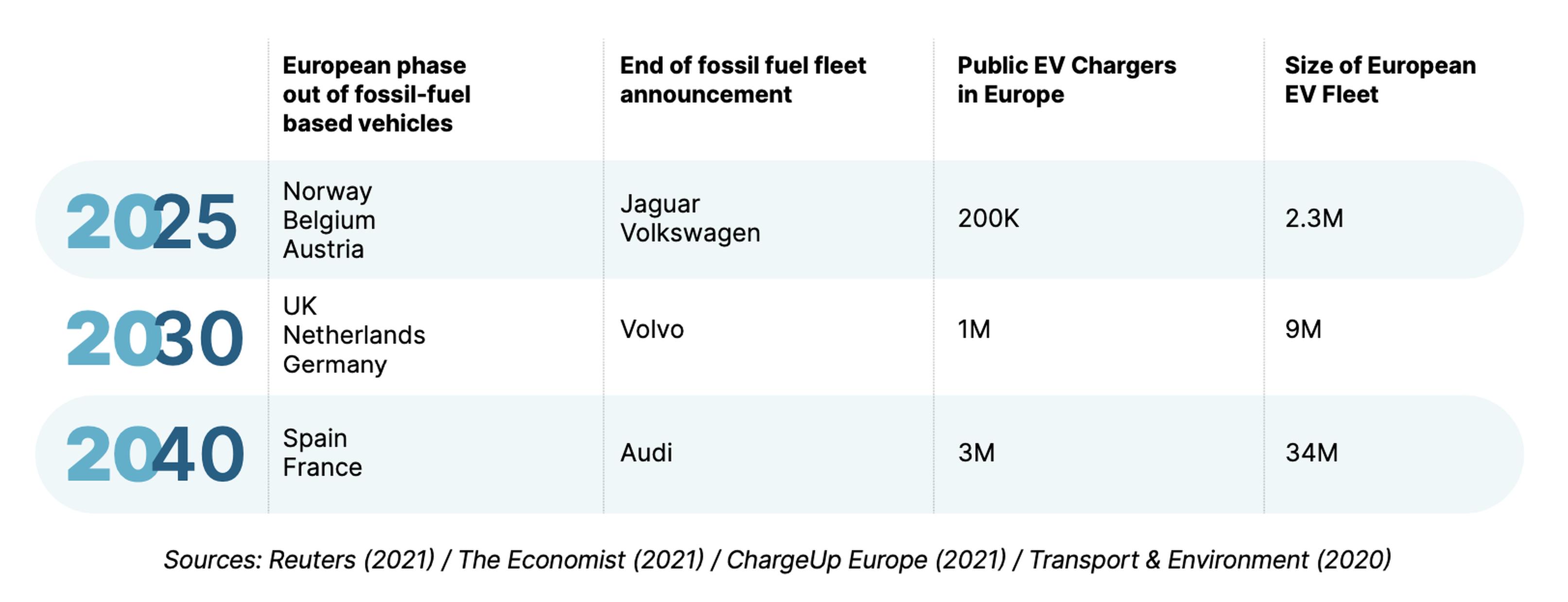

Around 34 million electric vehicles could be on Europe’s roads by 2030 with the streamlining of charging infrastructure critical to scaling the industry; an initiative that has required Herculean efforts from countries across the globe to deploy. On the Continent this has been driven by the European Union’s proposal in July earlier this year to ban the sale of new petrol and diesel cars from 2035 – in the UK it is 2030.
With new electric models emerging and their popularity increasing fast, such a steady surge can only be sustained if the user experience is simple, allowing station to station and cross-border travel in a frictionless manner. In today’s modern society, drivers expect to be able to charge their vehicles anywhere, anytime. This is where payment infrastructure can act as a critical market accelerator, enabling drivers to pay and charge up at any station easily, whether they are at home or abroad, by enabling charging point operators to accept both domestic and cross-border payments.
By the end of the decade, Jaguar, Volkswagen and Volvo will have all ended fossil fuel fleet production, with many other manufacturers matching that pledge, or following closely behind, whilst public electric vehicle (EV) chargers in Europe are expected to number one million – compared to an estimated nine million European fleet of EVs. Nonetheless, fast forward to 2040 and the scale of the issue becomes more apparent. Rather than one public EV charging point for every nine electric vehicles across Europe, the estimated number for 2030, the ratio jumps to one in almost ten-and-a-half (three million charging points for 34 million EVs).
Thus, it is not just the production of new EV cars that manufacturers and potentially consumers should be worried about but instead whether the payment infrastructure can keep up. Indeed, one of the key factors for the successful deployment of EVs is that charging infrastructure is readily accessible to all and evolves rapidly enough to match the speed and convenience of fuelling a fossil-fuel based car. But barriers remain for payments providers targeting the EV market.
As a starting point, there are a number of ways a customer will expect to be able to pay to charge their car in the future: debit and credit cards, mobile wallets, app-based payments and mobile payments and services. A fully working solution – one that is yet to be widely implemented – will be able to provide the customer with this array of payment services and make it work for them regardless of the currency of regulatory regimes attached to the country in question.
Moreover, the payments themselves will not necessarily take place at the charging location itself. Rather, just like how ‘click & collect’ allows customers to pay for their weekly shop before arriving, ‘click & charge’ could similarly enable EV users to pay for their charge before they arrive at the charging point. In order for this to work a seamless interface between the app and the charging app is needed to make the whole process as frictionless as possible for the benefit of the driver.
Finally, car manufacturers are also unlikely to standardise their offering. Each operator will take payments differently, whilst charging stations which are operated by petrol stations will probably carry on the loyalty programmes they currently deploy. These programmes will need to be incorporated into charging systems and, to add one more layer of complexity, these systems will need to be set up to receive network updates. If there is a standardised system in place, however, the problems associated with the loyalty schemes should not cause widespread problems.
It is also worth remembering how quickly we can adapt to change in times of adversity and wholesale changes to the way we go about our daily lives from a transport perspective (e.g. travelling to and from the shops in a car to get the shopping) is a must, and the EV market is no different. Before long EV charging points will be as common as petrol stations are today and this will force manufacturers to implement the best payment solutions at their disposal. This will, over time, optimise the experience for customers by providing them with in-built payment solutions at their fingertips. It will also provide EV drivers with the trusted experience they are looking for and should erase doubts that owning an electric car is neither practical, affordable nor safe.
Recently there have been preoccupations for UK drivers including the fuel crisis that gripped the nation over several weeks in the autumn. Global chip shortages have also driven up prices for new cars, in turn increasing the costs of second hand ones.
All of these issues may well have caused heads to turn and encourage people to look at buying electric. And, once car manufacturers are able to standardise and optimise their payment solutions for the benefit of the customer, big obstacles will have been overcome for a working EV market to hit the Continent.
Anthony Wicks is key accounts manager, self-service GSV, parking and EVC at Worldline
Seamless Payments, Worldline’s white paper, was produced in collaboration with Visa, Elmtronics and e-Totem smart charging and get insights from Payments and EV Charging experts. Download it now for free by clicking here

TransportXtra is part of Landor LINKS
© 2025 TransportXtra | Landor LINKS Ltd | All Rights Reserved
Subscriptions, Magazines & Online Access Enquires
[Frequently Asked Questions]
Email: subs.ltt@landor.co.uk | Tel: +44 (0) 20 7091 7959
Shop & Accounts Enquires
Email: accounts@landor.co.uk | Tel: +44 (0) 20 7091 7855
Advertising Sales & Recruitment Enquires
Email: daniel@landor.co.uk | Tel: +44 (0) 20 7091 7861
Events & Conference Enquires
Email: conferences@landor.co.uk | Tel: +44 (0) 20 7091 7865
Press Releases & Editorial Enquires
Email: info@transportxtra.com | Tel: +44 (0) 20 7091 7875
Privacy Policy | Terms and Conditions | Advertise
Web design london by Brainiac Media 2020